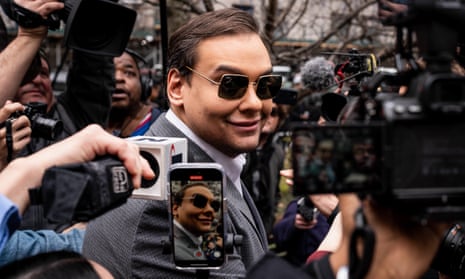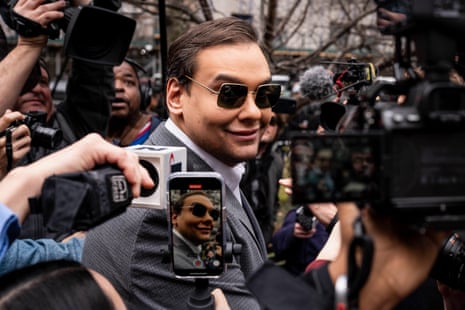Intervision was first launched in 1965 in Czechoslovakia. Photo: YouTube
Eurovision has always been a political affair. With the annual competition taking place in Liverpool next week, the British are giving last year's winners, Ukraine, a place to celebrate away from Russian drone strikes.
This is a rare example of international cooperation in the 67-year history of the competition. It may be presented as a celebration of cross-cultural music-making, but in fact it is viciously partisan, with more real politics than the Italian Renaissance. This is the “Prince” Machiavelli, decorated with mohair and rhinestones. Talent has almost nothing to do with success.
It shouldn't be like that. In fact, there was a European music competition, which was really international, external and determined by merit. Intervision, which ran in two series, first in Czechoslovakia between 1965 and 1968 and then in Poland between 1977 and 1980, is often portrayed as the Soviet Union's husky Eurovision rival. Myths abound about this: that it was decided by misguided voters who turned the lights on and off; that it was dominated by energetic women in hairy shirts, singing folk tunes. And that it was sponsored by Soviet apparatchiks to enforce party discipline: an invigorating antidote to the corrupting influence of Western pop music.
“So much rubbish has been written about Intervision, especially in the British media,” says Dr. Dean Vuletic, author of Post-War Europe and Eurovision. “Intervision was never created to compete with Eurovision. [In fact] it was intended as a bridge between east and west. This was a reflection of the liberalization policy and international openness of the Czechoslovak and Polish communist parties of that time.”
Intervision was first proposed by the International Radio and Television Organization, the Eastern European counterpart of the European Broadcasting Corporation, in 1965. Stalin's death a decade earlier led to a period of increased openness. When the Berlin Wall was erected in 1961, intellectuals in the Eastern Bloc began to look to the West and plucked up the courage to celebrate their own artistic traditions.
 Pioneer: Jiri Pelikan, organizer of the first Intervision Song Contest Photo: ZUMA Press, Inc./Alamy Stock PhotoIt is in this spirit that Jiří Pelikan, head of Czechoslovak Television and a fierce media freedom fighter, founded the Intervision Song Contest. Pelican may have gained influence from Eurovision, which was also organized the same year, but he never saw him as a direct competitor to beat the contest. In fact, the Eurovision Song Contest was broadcast in the Soviet Union all this time, and the International Radio and Television Organization even offered to hold a joint East-West song contest in 1964. But it was rejected because Eurovision was considered a bad partner.
Pioneer: Jiri Pelikan, organizer of the first Intervision Song Contest Photo: ZUMA Press, Inc./Alamy Stock PhotoIt is in this spirit that Jiří Pelikan, head of Czechoslovak Television and a fierce media freedom fighter, founded the Intervision Song Contest. Pelican may have gained influence from Eurovision, which was also organized the same year, but he never saw him as a direct competitor to beat the contest. In fact, the Eurovision Song Contest was broadcast in the Soviet Union all this time, and the International Radio and Television Organization even offered to hold a joint East-West song contest in 1964. But it was rejected because Eurovision was considered a bad partner.
“Eurovision has always been criticized for its high cost, poor quality of songs and unfair voting – this was also the case in the 1960s,” notes Vuletić. “Back then they weren't even sure they wanted to continue Eurovision.” It's a teasing thought: if history were to take another turn, could we be gearing up for the annual Intervision next weekend?
However, this was not destined to happen. Pelican was one of the main instigators of the Prague Spring in 1968, when the reformist leader Aleksander Dubček tried to open up the country. His efforts sparked massive protests, and Czechoslovakia teetered on the brink of democracy and economic liberalization. However, the Soviets brutally pushed him back to communism, sending over 500,000 troops to quell the unrest. The Dubcek government was overthrown and the Soviet puppet leaders put in their place. And Intervision, a vivid symbol of what could have been for the country, was never broadcast again on Czech television.
 Uprising: tanks on the streets of Prague, 1968 By LIBOR CHAYSKY
Uprising: tanks on the streets of Prague, 1968 By LIBOR CHAYSKY
In fact, it was closed until 1977, when it reappeared in another country and under a different name. The Sopot International Song Festival was first held in 1961 at the Gdańsk shipyard in Poland, and then moved to an open-air amphitheater in Sopot, a town 32 km away. It was founded by Władysław Szpilman, a Polish Jewish musician who decades later became the inspiration for Roman Polanski's Oscar-winning film The Pianist.
Szpilman worked for Polish radio, and his performance of Chopin's Nocturne in C-sharp minor was the last live musical broadcast before the Nazi invasion in 1939. He and his family were arrested and imprisoned in the Warsaw ghetto. But when they were sent to Auschwitz, he escaped and spent the rest of the war on the run. After 1945, he became a prominent figure in the Polish music scene, organizing the Sopot Festival as a showcase for Eastern Bloc talent and briefly resurrecting Intervision between 1977 and 1980.
As with the Czech version, the new Intervision sought to ease tensions between east and west through music. The Sopot Festival became the most popular music festival in the Eastern Bloc, and Polish TV executives saw a chance to prove their technical competence and dust off communist musical talent by showing it off to Western record labels.
In this way, Intervision became two simultaneous competitions: the usual Eurovision-style second round between national entries, and another where record companies sponsored performances. A lot of air time was devoted to Western performers with such household names as Gloria Gainer and Petula Clark, forcing the audience to stamp their feet during intermissions.
 Russian singer Alla Pugacheva, who scandalized Intervision in 1978 by signing a cross on stage Photo: YouTube
Russian singer Alla Pugacheva, who scandalized Intervision in 1978 by signing a cross on stage Photo: YouTube
But what did the Soviets think of this capitalist cuckoo in their nest? Basically, they were unperturbed. After all, the USSR had its own song contest “Song of the Year”. And, apart from occasional grumbling in behind-the-scenes reports about the alleged Soviet actions, the organizers of Intervision feared that it would become a forum for anti-Soviet dissent. Instead, the criticism should have been more subtle – in the beautiful Eurovision style, it was the presenters' harsh comments and audience behavior, which turned out to be the most hurtful.
“Of course I knew the rules,” host Jacek Bromsky told the BBC in 2012. – I could not say: “I hate Stalin, Lenin and other communist pigs,” because they put me in jail. But that didn't stop me from saying something between the lines because it got a lot of applause from the audience.”
One of the organizers, Eugeniusz Terlecki, recalled: “Sometimes even good artists from the Soviet Union were not appreciated, and the audience whistled them. The Russian people as a nation are in order. But the Soviet Union as a country and as a government did a lot of bad things, and we remember that.”
Western interval acts, however, were allowed more license. Afro-funk band Boney M. played their hit Rasputin in a 1979 Intervision hilariously and hyperactively. The song was banned in the USSR for its reference to the tsarist monarchy, although in the lyrics it glorified “Russia's greatest love machine”. So it was a bold choice for Intervision organizers.

Meanwhile, the most dramatic moment of the anti-Soviet protest could not have happened at all. According to some reports, at the end of her performance, the Russian singer Alla Pugacheva, who won the competition in 1978, spontaneously crossed herself on stage – a manifestation of high moral courage in an openly atheistic USSR. The Polish television director Jerzy Gruzah recalled this as follows: “At the end of the speech, Pugacheva crossed herself. There was great applause. But the head of the Polish Television took me aside and said: “What a scandal – we will cut your salary.”
But Vuletika is not convinced. “I looked for it many times on TV and couldn’t find it. I just don't believe it happened – people remember things the way they want to remember them. To be successful, these artists had to at least conform to the principles of the Communist Party, and such high-profile criticism was not common at Intervision.”
In addition, many artists saw Intervision as a stepping stone to something far more life-changing: success in the West. One such musician who made this dream come true was the Czech singer Karel Gott. Through his participation in Intervision and other television programs, he became the best-selling singer in the country, releasing over 100 albums and selling 50-100 million records worldwide, 23 million of which were in Germany. Gott's voice, like Intervision's influence, playfully shimmered through the Iron Curtain.
 Helena Vondrackova won in 1977 and met her husband. Photo: Helena Vondrackova
Helena Vondrackova won in 1977 and met her husband. Photo: Helena Vondrackova
The competition also became a launching pad for the career of Helena Vondrackova, a Czech. She won in 1977 with the song Malovaný džbánku. “I consider [winning] a great honor. This song has become so popular that my fans won't let me miss it even once during my performances,” she told me. “But to be honest, this song has proven to be popular in all the other countries I perform in, such as Germany, Japan, Canada and many more.”
Vondrachkova also did not see anti-Soviet sentiments. “I have never participated in the Eurovision Song Contest, so I cannot comment on it. But I definitely didn’t notice such sensations at the Intervision festival, ”she says. “[Intervision] has connected musicians from all over the world, and this has often allowed us to make lifelong friendships.”
Vondrackova should know that after her win, bassist Helmut Sickel of the East German band Kreis came over to congratulate her. Shortly thereafter, they got married.
But Intervision's serene promise didn't last long. In 1980, Intervision was in danger of being overshadowed by yet another mass event: at the Gdansk shipyards, the original site of the Sopok song festival, a coalition of trade unions and workers went on strike. Led by the charismatic locksmith Lech Walesa, also known as “the little man with the big mustache,” this strike turned into a nationwide Solidarity movement that campaigned for reform and exit from the Soviet sphere of influence.
There is no evidence that Solidarity was inspired by Intervision. But the foreign correspondents who gathered in nearby Sopoka to cover the festival certainly did not interfere: Western journalists have always been interested in a story about the collapse of Soviet rule. And the riots made organizers nervous.
 Moderator: Lech Walesa addresses the workers of the shipyard named after. Lenin Photo: Chris Niedenthal
Moderator: Lech Walesa addresses the workers of the shipyard named after. Lenin Photo: Chris Niedenthal
“There was a lot of tension,” recalls Gruza. “I remember there was a big explosion on stage. The lamp is broken. Two minutes later, the whole band was already on the bus, trying to escape. They were frightened by the sound of a broken light bulb. They thought it was a bomb, or the Resistance, or something like that.
1980 was the last year for Intervision. The following summer, martial law was declared in Poland, and tanks rumbled through its streets. But in a sense, the timing was bad: Five years later, Mikhail Gorbachev became the party's general secretary and slowly began the glasnost reforms that turned the Soviet Union toward the West. Intervision may have been a hallmark of this policy.
“There is a legacy of the depreciation of the cultural products of the Soviet Union,” says Vuletić. “But at Intervision, we have an example of common European Cold War cultural heritage and cooperation between East and West.”
Yet 1980 was not the end of Intervision. In 2008, Putin tried to revive the competition, even choosing the venue – Sochi – and inviting former Eastern Bloc countries such as Tajikistan, Armenia and Belarus. However, unlike the original Intervision, it was clearly intended as a rival to Eurovision, which up to this point Russia had never won. Russia was to play a leading role in a way it never did in the original competition, and Western nations were excluded.

The 2008 Intervision was a failure. In the same year, Russia won Eurovision and thus won the right to host the 2009 contest. Putin's pride has been subdued, and plans to revive Intervision have been abandoned. And his legacy of pan-European cooperation has become one of the many victims of Putin's history-distorting machine.
This year, more than ever, the political kabuki at Eurovision is coming to the fore: Russia remains a pop pariah, facing a potentially permanent ban from the contest after invading Ukraine. The national broadcasters of Russia have suspended their membership in the European Broadcasting Union, the organizers of the show, which means that they are threatened with exclusion from future competitions. And, of course, the representative of Ukraine, the Kalush Orchestra, won the show in 2022.
Will Ukraine repeat their feat? In a way, it doesn't matter. As with last year's contest, solidarity, which is usually lacking in Eurovision, has again become the motto of the contest. Whatever happens in 2023, Eurovision may have finally achieved what Intervision has been striving to prove: music can connect East and West. And that, despite language and political barriers, we are united more than what separates us. Even if it's just love for rhinestones, sequins and women in hairy shirts singing folk songs.





























































Recent Comments